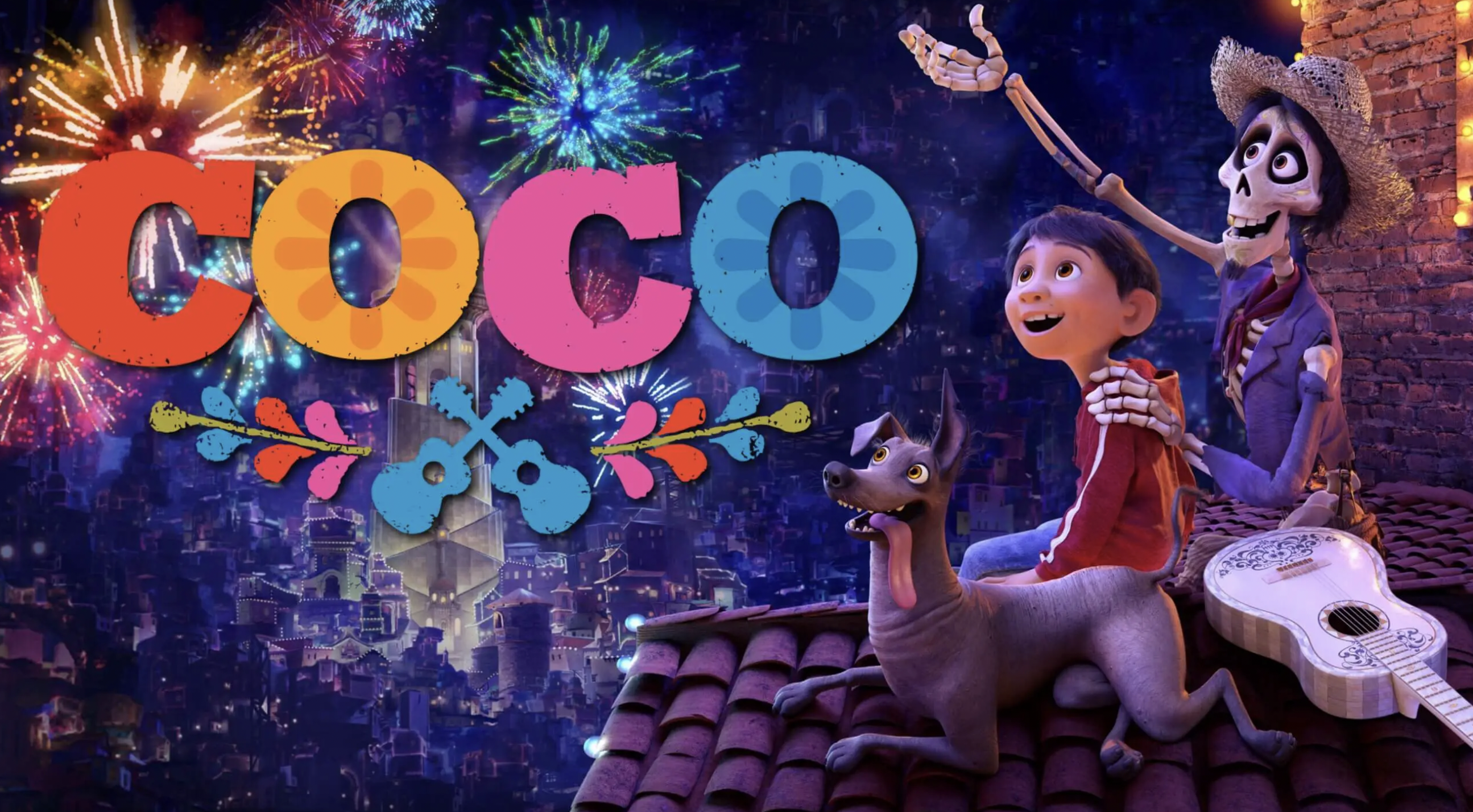Our family loves to ring in a new holiday season by watching movies that somehow commemorate the celebration. Each year, we build a list of favorite Christmas films, and as the month of December ticks by, we each take turns drawing a movie name from a hat on nights we have no other plans. Forget family movie night; December is family movie month around these parts.
Halloween has its own catalog of spooky films, some age appropriate, most not, but one that gets me every year is the beautiful and moving film, Coco.
Coco: What to Expect
Released in 2017 by Pixar Animation Studios and Walt Disney Pictures, Coco is the story of a boy named Miguel who wants to become a famous musician like his idol, Ernesto de la Cruz. Unfortunately for Miguel, Miguel’s great great grandfather abandoned his family for music, and as a result, music was banned by his great great grandmother. Whenever Miguel tries to play any kind of music, his grandmother screams, “No music!”
Miguel can’t help himself; he loves music, and he loves Ernesto de la Cruz, especially his song, “Remember Me.” Miguel is torn between his passion for music and his love for his family. That tension draws him into the Land of the Dead to pursue his dream and heal the fracture in his family’s past.
Finding the Love: Faithifying Your Viewing
Like Pixar’s entire catalog, the film is far more than children’s entertainment. It is embedded with truths about family, loyalty, calling, reconciliation, and love.
Coco takes place on Día de los Muertos, or the Day of the Dead, a holiday celebrated mostly in Mexico on November 1 and 2. The celebration of Día de los Muertos finds close parallels to All Saints Day and All Souls Day, the Catholic holidays celebrated on November 1 and 2. It is a joyous celebration of ancestry, a time to remember friends and family who have died. The holiday has a spiritual component to it: family members build altars with memorabilia, food, and other decorations to encourage their ancestors to visit them on this one special day.
Our American sensibilities may find the idea of inviting our ghostly ancestors back into our homes to be a little… a lot… spooky, but in the Mexican tradition, Día de los Muertos honors the memory of the family members who have come before us. Remembering our family heritage instills a sense of security and self-awareness in us. It connects us to the huge web of our humanity.
Our stories of origin provide a foundation for who we are. Whether we are born into or adopted into a family, where we come from matters.
The Bible is littered with genealogies that tell their own stories of origin, and those genealogies are rich with complexity and power. Jesus comes from a long line of priests and kings, but also mixed in there are the names of five women. Even until recent history, family lineage has mostly focused on the names of the fathers; naming women in Jesus’ lineage was highly unusual. But what is more strange and fascinating is what kind of women are listed in Jesus’ genealogy.
Tamar was the widowed daughter-in-law of Judah. She disguised herself as a prostitute in order to trick Judah into impregnating her and giving her a son. Rahab, the wife of Salmon, is also identified as a prostitute and a Gentile living in Jericho. Ruth is a widow and a Moabite. She became the daughter-in-law of Rahab. Bathsheba (Uriah’s wife) is the woman David committed adultery with and the wife of the man David had killed so that he could marry Bathsheba. And Mary is the pregnant teenager engaged to be married to Joseph.
God is the God of surprising grace, subversive love, the God who comes for the poor and oppressed. As the Lord says to Samuel about David, “People look at outward appearances, but the Lord looks at the heart” (1 Samuel 16:7 NIV). The stories of the five women in Jesus’ genealogy show us how God has the power to redeem our lives to ultimately be a force for good in the world. It gives us hope.
In Coco, Miguel learns a lot about the surprising power of family and the power of truth, forgiveness, and love to change our future and to bridge huge divides, even the divide of life and death. Family matters. As we dig into our family of origin, God reminds us in Jesus’ genealogy and in the book of Hosea, “In the place where it was said to them, ‘You are not my people,’ they will be called ‘children of the living God.’” Ultimately, this is our most significant family of origin, and it is the ancestry from which we can go on to write our own legacies.
Remember where you come from. Remember who you come from. That story will propel you forward.





 Copyright
2024
Root and Vine
Copyright
2024
Root and Vine